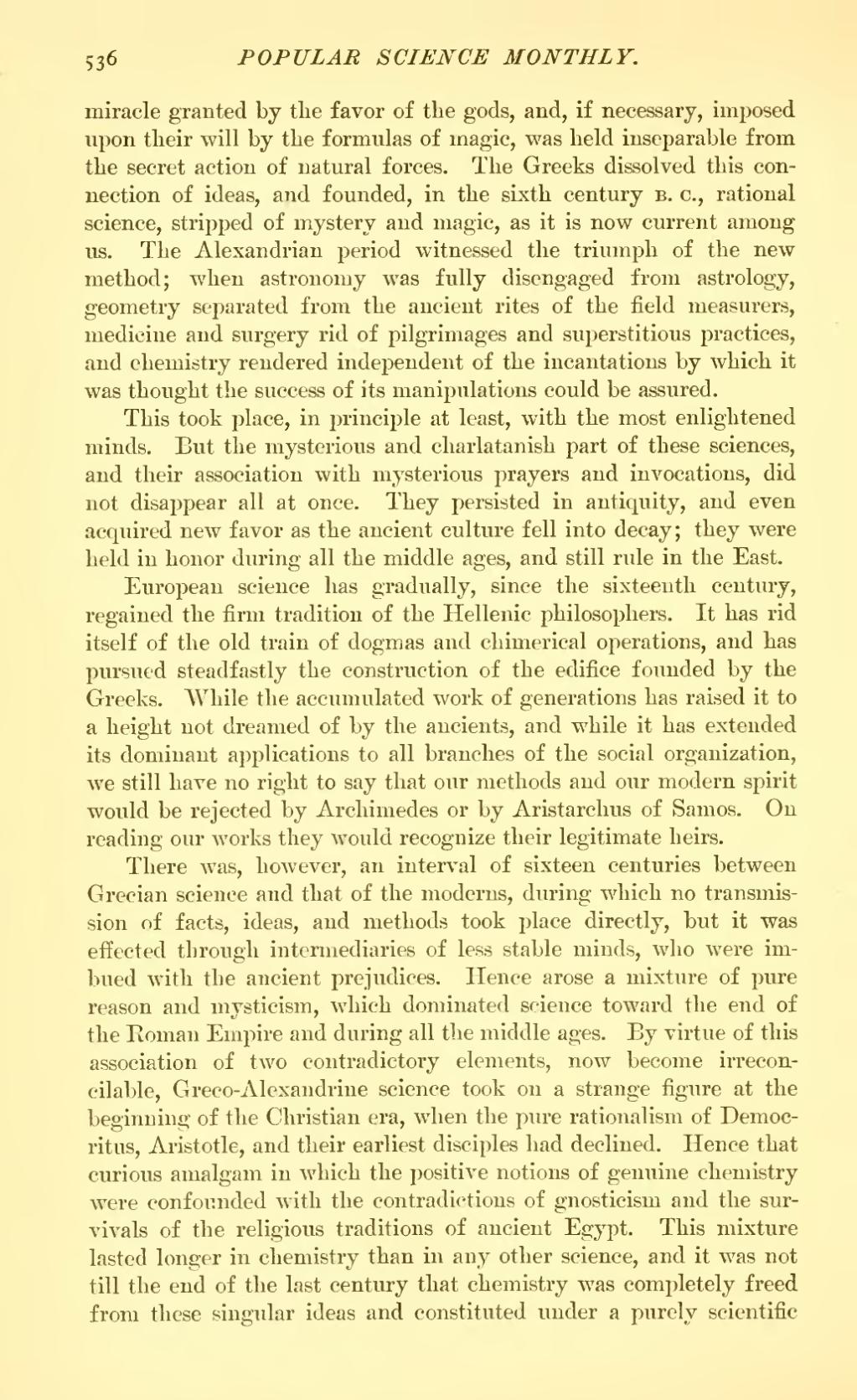miracle granted by the favor of the gods, and, if necessary, imposed upon their will by the formulas of magic, was held inseparable from the secret action of natural forces. The Greeks dissolved this connection of ideas, and founded, in the sixth century b. c., rational science, stripped of mystery and magic, as it is now current among us. The Alexandrian period witnessed the triumph of the new method; when astronomy was fully disengaged from astrology, geometry separated from the ancient rites of the field measurers, medicine and surgery rid of pilgrimages and superstitious practices, and chemistry rendered independent of the incantations by which it was thought the success of its manipulations could be assured.
This took place, in principle at least, with the most enlightened minds. But the mysterious and charlatanish part of these sciences, and their association with mysterious prayers and invocations, did not disappear all at once. They persisted in antiquity, and even acquired new favor as the ancient culture fell into decay; they were held in honor during all the middle ages, and still rule in the East.
European science has gradually, since the sixteenth century, regained the firm tradition of the Hellenic philosophers. It has rid itself of the old train of dogmas and chimerical operations, and has pursued steadfastly the construction of the edifice founded by the Greeks. While the accumulated work of generations has raised it to a height not dreamed of by the ancients, and while it has extended its dominant applications to all branches of the social organization, we still have no right to say that our methods and our modern spirit would be rejected by Archimedes or by Aristarchus of Samos. On reading our works they would recognize their legitimate heirs.
There was, however, an interval of sixteen centuries between Grecian science and that of the moderns, during which no transmission of facts, ideas, and methods took place directly, but it was effected through intermediaries of less stable minds, who were imbued with the ancient prejudices. Hence arose a mixture of pure reason and mysticism, which dominated science toward the end of the Roman Empire and during all the middle ages. By virtue of this association of two contradictory elements, now become irreconcilable, Greco-Alexandrine science took on a strange figure at the beginning of the Christian era, when the pure rationalism of Democritus, Aristotle, and their earliest disciples had declined. Hence that curious amalgam in which the positive notions of genuine chemistry were confounded with the contradictions of gnosticism and the survivals of the religious traditions of ancient Egypt. This mixture lasted longer in chemistry than in any other science, and it was not till the end of the last century that chemistry was completely freed from these singular ideas and constituted under a purely scientific

